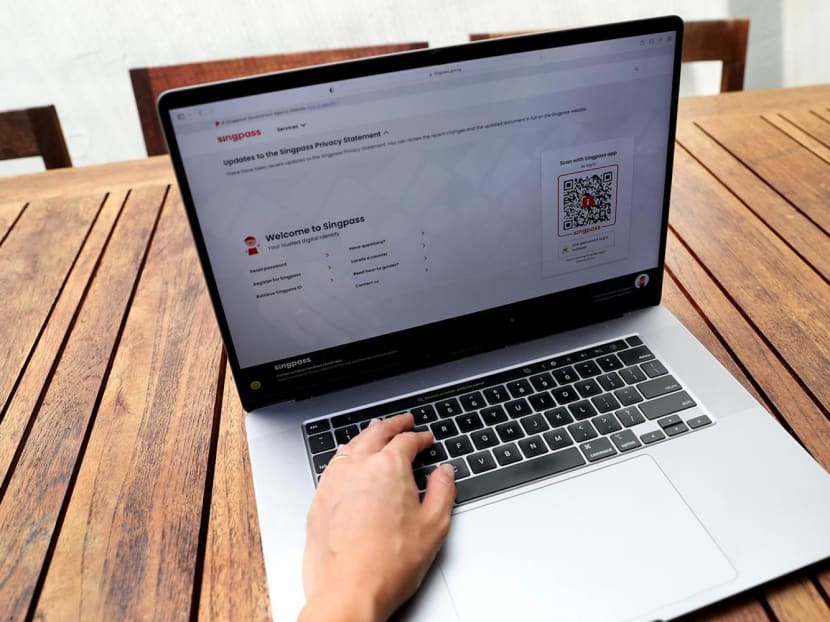New laws targeting money mules will not penalise those genuinely tricked into sharing bank, Singpass accounts: Josephine Teo
SINGAPORE — People who were genuinely tricked into giving up control of their bank accounts or disclosing their Singpass credentials, or who needed help making transactions but were then betrayed, would not be penalised under new anti-scam laws.

- Amendments to two sets of laws were debated and passed in Parliament on May 9
- The new laws will make it illegal for people to share their Singpass password or account with someone who they suspect will use it to commit a crime
- The laws will also make it easier for the authorities to prosecute money mules who allow scammers to use their bank accounts without taking any steps to understand the purpose of the use
- Members of Parliament asked about protection measures for account holders with different levels of knowledge and susceptibility to scams
- Questions were also raised about the scope of payment types and online platforms covered under the new laws
SINGAPORE — People who were genuinely tricked into giving up control of their bank accounts or disclosing their Singpass credentials, or who needed help making transactions but were then betrayed, would not be penalised under new anti-scam laws.
Mrs Josephine Teo, Minister for Communications and Information, made this reassurance in Parliament on Tuesday (May 9) as she wrapped up a debate on proposed amendments to two sets of regulations.
They are the Corruption, Drug Trafficking and Other Serious Crimes (Confiscation of Benefits) Act and the Computer Misuse Act.
Both Bills were debated concurrently and passed into law after eight members of the House spoke, with three speaking on Monday and the remaining five on Tuesday.
Mrs Teo, who is also Second Minister for Home Affairs, said: “The provisions of the Bills are not targeted at persons who had no reasonable grounds to believe they were dealing with criminal proceeds or facilitating offences.”
The police recognise that there are situations where there is a genuine need to share credentials for legitimate transactions, and they will investigate the cases comprehensively considering factors such as the person’s mental capacity, Mrs Teo added in response to concerns raised by Members of Parliament (MPs) Sylvia Lim, Louis Ng and Yeo Wan Ling.
Singpass is the national authentication and passcode system for government and other e-services.
Under the new laws, it will be illegal for people to share their Singpass password or account with someone who they suspect will use it to commit a crime.
The new laws will also make it easier for the authorities to prosecute money mules who allow scammers to use their bank accounts without taking any steps to understand why their accounts are being used.
FAST REPORTING SHOULD BE CONSIDERED BY POLICE
During the debate, MPs were concerned about Singpass account holders having different levels of knowledge and experiences, and their susceptibility to scammers may also vary.
Bukit Batok MP Murali Pillai said: “In these circumstances, to apply an objective standard may operate unfairly against some of the account holders who do not have sufficient knowledge and experience and therefore, are less discerning than others.”
The “potential harsh effect of applying an objective standard on certain account holders” could be mitigated with the introduction of a “whitewash policy”, he added.
A whitewash policy would make provisions for account holders not to be held criminally liable if they were to make a police report soon after they received money that they believed were derived from ill-gotten gains, even if they may be criminally liable in the first place owing to their negligence.
Mr Murali said that for account holders who do not act with diligence, they would soon realise what had happened when they receive the money. "So these account holders should be incentivised and given credit for proactively reaching out to the authorities in such circumstances.”
Mrs Teo responded that the authorities will take this into account during investigations, but added: “I will not go so far as to say that they should be automatically freed of criminal liability. Each case has to be assessed on its own facts and circumstances.”
Mr Murali clarified after the debate that he had made his suggestion only with regard to people who were negligent but later went to make a police report after they had received money and realised that their accounts had been misused — and that this should not apply carte blanche to all cases where people file a police report quickly.
Mrs Teo said that the police would look at each situation and examine its circumstances carefully before assessing whether to proceed with further action.
E-WALLETS COVERED UNDER THE NEW LAWS
The new laws will cover e-wallets and mobile banking modes such as Apple Pay and Google Pay, Mrs Teo said.
This was in response to a question from Mr Sharael Taha, MP for Pasir Ris-Punggol Group Representation Constituency, who asked if the law would cover such platforms, beyond banks and Singpass accounts.
“It’s a good question because the money mules do not only use traditional banking accounts,” Mrs Teo said, adding that the new offences would thus apply to various types of payment accounts.
LOOKING OUT FOR RED FLAGS
As scams evolve quickly, it is difficult to provide a definitive list of red flags that people should watch out for to be alert for scams, Mrs Teo said, but she provided a couple of examples that should ring alarm bells:
- If they are told something very bad has happened to them or their loved ones, since “scammers love to make people panic, because that is when people lose their best judgement”
- If they are told something that sounds too good to be true, since “scammers know that greed can make fools of geniuses”
On the need to educate the public, a suggestion voiced by several MPs, Mrs Teo said: “This work will never end. We will cooperate with key stakeholders and intensify public education efforts before implementing the Bills, to explain the dangers, the new guardrails, and the red flags that we should be mindful of.”
The new laws are intended to come into force in six months’ time, to allow for the public to familiarise themselves with the changes, she added.











